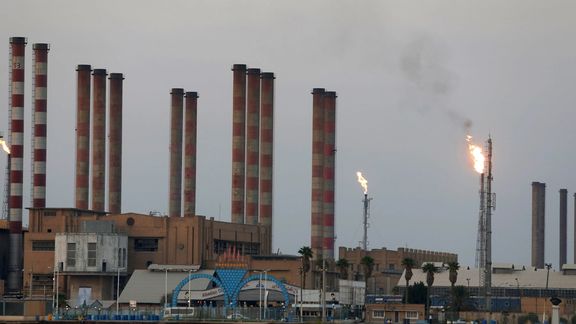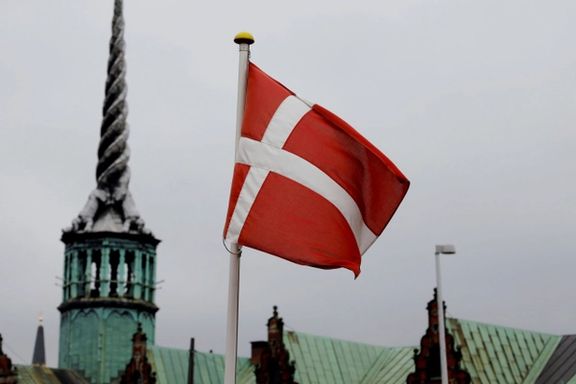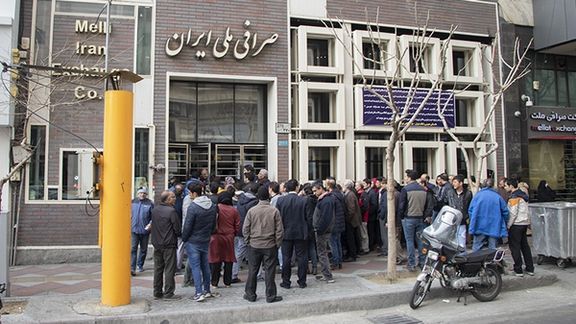Parliament Member: Iran’s Use Of Barter Thwarts US Pressure

Iran is increasingly using international barter, exporting hundreds of thousands of tons of oil derivatives to Brazil in return for livestock feed.

Iran is increasingly using international barter, exporting hundreds of thousands of tons of oil derivatives to Brazil in return for livestock feed.
Zabihollah Azami-Sardoui, a member of parliament’s agriculture committee, told the Iranian Labour News Agency (ILNA) that Brazil was a suitable match as it needed petrochemical products, especially nitrogen-based fertilizers, and could in return supply corn, soybean meal, and meat.
Iran has expanded barter to circumvent United States ‘maximum pressure’ sanctions, which threaten punitive action against any third party buying Iranian oil or dealing with Iran’s financial sector. Bartering oil for of imports animal feed and agricultural products has proved particularly viable.
Barter can be effective where there is a rough trade balance, but is less practical where trade is imbalanced. Azami-Sardoui said challenges in bartering were being overcome.
Some have criticized the practicalities of such arrangements. "We had not signed clear agreements with China for bartering,” Masoud Daneshmand, a business representative in Tehran, told ILNA in January. “We gave them oil and told them to pay in kind. In such circumstances, they give us all their inferior quality products including the pesticides that have caused so much damage to our agricultural exports.”
Daneshmand also took issue with an agreement to receive tea from Sri Lanka as ‘payment’ for a nearly decade-old $251-million oil debt. At least until US ‘maximum pressure’ sanctions were introduced in 2018, Iranians were among the top ten drinkers of Sri Lanki tea.

The second round of a ‘people’s tribunal’ to investigate killings of protesters and rights violations by Iran has begun behind closed doors due to security reasons.
This round of the People’s Tribunal, organized by human rights groups, began work in London on Friday and will continue until Sunday.
The hearings in this round will be held behind closed doors because of considerations for the security of the witnesses, and only a selected number of journalists are invited to attend the sessions.
The human rights advocates who are engaged in the tribunal say after the first round that was held in November 2021, at least 116 new people volunteered to provide evidence about the bloody November 2019 protests that is the focus of the panels.
The protests were the bloodiest in Iran’s history with security forces opening fire on demonstrators in many cities, killing hundreds. Thousand were arrested and jailed without due process of law and there were numerous reports of torture in prison.
In the November session, the tribunal accused Iran’s top leadership of crimes against humanity and experts argued that there could be no question of impunity for political leaders.
The panel of the Tribunal has identified 27 more state actors as perpetrators of the violence, which brings the number of those accused of committing crimes under international law to 160.
The tribunal − also known as Aban Tribunal after the Iranian calendar month of Aban − was established on the first anniversary of the 2019 protests by the London-based Justice for Iran, the Oslo-based Iran Human Rights (IHR), and the international anti-capital punishment organization Ensemble Contre la Peine de Mort (Together Against the Death Penalty). The verdicts of the Tribunal will be symbolic.
The tribunal will hear and examine evidence and testimonies on crimes against humanity, extrajudicial killings and executions, torture, rape of prisoners, and harassment of the families of the victims which organizers say all indicate an extensive systematic state policy behind suppressing protesters. The Iranian Constitution recognizes the right to peaceful protests.
During the first round, the Atrocities Tribunal said that Iran’s top nuclear negotiator Ali Bagheri-Kani demanded that Britain stop the sessions.
Quoting unnamed “European sources”, the official Twitter channel of the Tribunal said the Iranian diplomat, who visited the UK Foreign Office on November 11, had threatened to stop part of his nuclear talks with world powers if the Tribunal continued its work.
After the first round was held, some hardline media in Iran called the tribunal a British stunt to shift attention from £400 million owed to Iran, while others said the United States or Zionists had set up a theatrical show, but it appears the event had enough impact on public opinion that Iran’s hardliners chose to react.

A Danish district court on Friday found three members of an Iranian Arab opposition group guilty of financing and supporting terrorist activity in Iran in collaboration with Saudi Arabian intelligence services as well as espionage.
The three members of the Arab Struggle Movement for the Liberation of Ahvaz (ASMLA) were arrested two years ago and have been in custody since.
The defendants face prison sentences of up to 12 years for numerous offences, including providing information about Danish and foreign organizations and individuals to a Saudi Arabian intelligence service.
The court will decide on sentencing in March.
All three defendants also face potential deportation, and one also risks having his Danish citizenship revoked.
ASMLA seeks a separate state for ethnic Arabs in Iran's oil-producing southwestern province of Khuzestan. Arabs are a minority in Iran, and some see themselves as under Persian occupation and want independence or autonomy.
The three men were also convicted of endorsing attacks against Iran and supporting the militant group Jaish al-Adl, which operates in Iran and is listed as a terrorist organization by the United States.
In a related case, a Norwegian of Iranian heritage was sentenced to seven years in May last year for spying for an Iranian intelligence service and plotting to assassinate one of the ASMLA-members.
The two cases have exposed an intelligence power struggle on Danish soil between Saudi Arabia and Iran, and led Denmark to call for EU-wide sanctions on Iran in 2018 following the Norwegian man's arrest.
Reuters' Report

Iran's health ministry has declared a hospital emergency as the Omicron variant of Covid-19 grips the country. Nearly 80 Iranian cities are deemed "red zones.”
After a few weeks of relative calm, only 11 cities still show ‘blue’ on the Covid map, with Tehran among the ‘red’ cities and 180 cities categorized as "orange.”
Health authorities, who have said the country is in a sixth wave of the pandemic, expect infections to rise to “up to” 400,000 daily cases with three-digit daily death figures. The health ministry said Thursday that numbers in hospital had increased by 64 percent in a week to over 18,000.
On Saturday parliament's open sessions and committee meetings were cancelled as 47 of 290 lawmakers as well as 30 staff members had tested positive for Covid.
A member of the Scientific Committee of the national Covid taskforce, Hamidreza Abtahi, told the Iranian Labour News Agency (ILNA) Friday that Omicron was spreading faster than expected.
Abtahi expressed concern over plans to re-open schools and to hold gatherings during the ten-day Fajr period that ends on the anniversary of the 1979 Revolution on February 11. He cited the Fajr film and theater festivals, as well as Etekaf (from the Arabic for ‘adhering to’) ceremonies, scheduled this year for February 15-18, during which large numbers pray in mosques throughout day and night. The government has yet to announce restrictions on any of these activities.
Infections rose to over 37,000 Thursday, with 2,000 of those hospitalized. The death toll from Covid was reported at 61 for the 24-hour period ending Thursday noon.
Abtahi said cases requiring hospitalization had not increased at the same pace as under earlier Covid waves. An official of Zanjan Medical Sciences University, Mashoud Taghilou, told Tasnim news agency Friday that while infections in Zanjan province had jumped 20-fold in ten days, the numbers hospitalized had tripled and the numbers requiring intensive care doubled.
Iran has reported 6.48 million cases and over 132,600 deaths, since it became the second country in the world to declare an epidemic in February 2020. Critics accuse the government of underreporting Covid cases and deaths, although Iran has reported the highest number of deaths than all the other countries in the region and the second highest number of infections.
With around 66 percent of people vaccinated, Iran has reported 6.5 million cases compared to 12 million in Turkey with 85 percent vaccinated, 433,000 in Egypt, which has vaccinated 27 percent and has a larger population. The United Arab Emirates has vaccinated 96 percent and Iraq just 16 percent.
According to official figures so far over 60 million Iranians have received one dose, 54 million have had two doses, and 18 million have also had a booster.
Abtahi said authorities were concerned over the number of children with the virus, with most children not vaccinated and intensive care facilities in children's hospitals were limited. The committee, he said, had urged the authorities to vaccinate children between five and twelve urgently.
The World Bank in January approved a $90 million loan to help Iran manage the pandemic. "This funding will not go to the Iranian budget and all loan proceeds, as well as procurement and disbursements, are being managed by the World Health Organization,” a World Bank Spokesman told the AFP news agency.

Colombia has accused Venezuela of moving troops to their common border with technical assistance from Iran and Russia, Reuters reported.
Citing intelligence sources during an anti-drugs conference in Colombia's Caribbean city of Cartagena on Thursday, Defense Minister Diego Molano said that the troop movements took place near Colombia's Arauca province, which is the scene of violent drug war between guerrillas of the National Liberation Army (ELN) and FARC dissidents.
Molano called the deployment "foreign interference", saying, "We know that men and units of the FANB (the Spanish acronym for National Bolivarian Armed Forces of Venezuela) have been mobilized towards the border with technical assistance from Russia...and Iran”.
Colombia's human rights ombudsman has reported that clashes between the armed groups for control of the drugs trade in Arauca has left 66 dead and 1,200 displaced in January alone.
The Colombian government says Venezuelan President Nicolas Maduro is sheltering both FARC dissidents and the ELN, an accusation that has been repeatedly denied.
Venezuelan Defense Minister Vladimir Padrino Lopez called the allegation by his counterpart "inappropriate statement".
He described Colombia as the country which “Bogota's oligarchy has converted into an appendix of the (United States) South Command in our America, into a location of US military bases”.
Iran and Venezuela have strengthened their cooperation in recent years and continue exchanging oil products despite US sanctions on both countries, without any visible action by Washington, which tries to engage with both.

Iran’s battered currency has risen around 10 percent since its lows in early December when the market was gripped by pessimism over a possible nuclear deal.
The rial rose to 275,000 against the US dollar in Tehran’s unofficial currency exchange market on Friday, after falling to 310,000 in the closing weeks of 2021.
Nuclear talks that started last April in Vienna have yet to result in an agreement, but some progress has been reported. Negotiators have returned to their capitals in what diplomats have said is the decisive stage of making tough decisions.
Iran’s currency began to fall in late 2017 as it became apparent that former US president Donald Trump wanted to withdraw from the 2015 nuclear agreement with Iran and impose sanctions. It continued to lose value as Washington began imposing sanctions in mid-2018 and so far, the rial has fallen eightfold against major currencies.
As the cash-strapped government printed more money the currency became weaker and annual inflation reached to more than 40 percent.
Although there is no definitive outcome in the nuclear talks, the rial began rising in January. One reason could be Iran’s higher oil exports despite US sanctions. By all indications, Tehran has been shipping more crude in the past months, although it is not clear how much foreign currency returns to its coffers.






